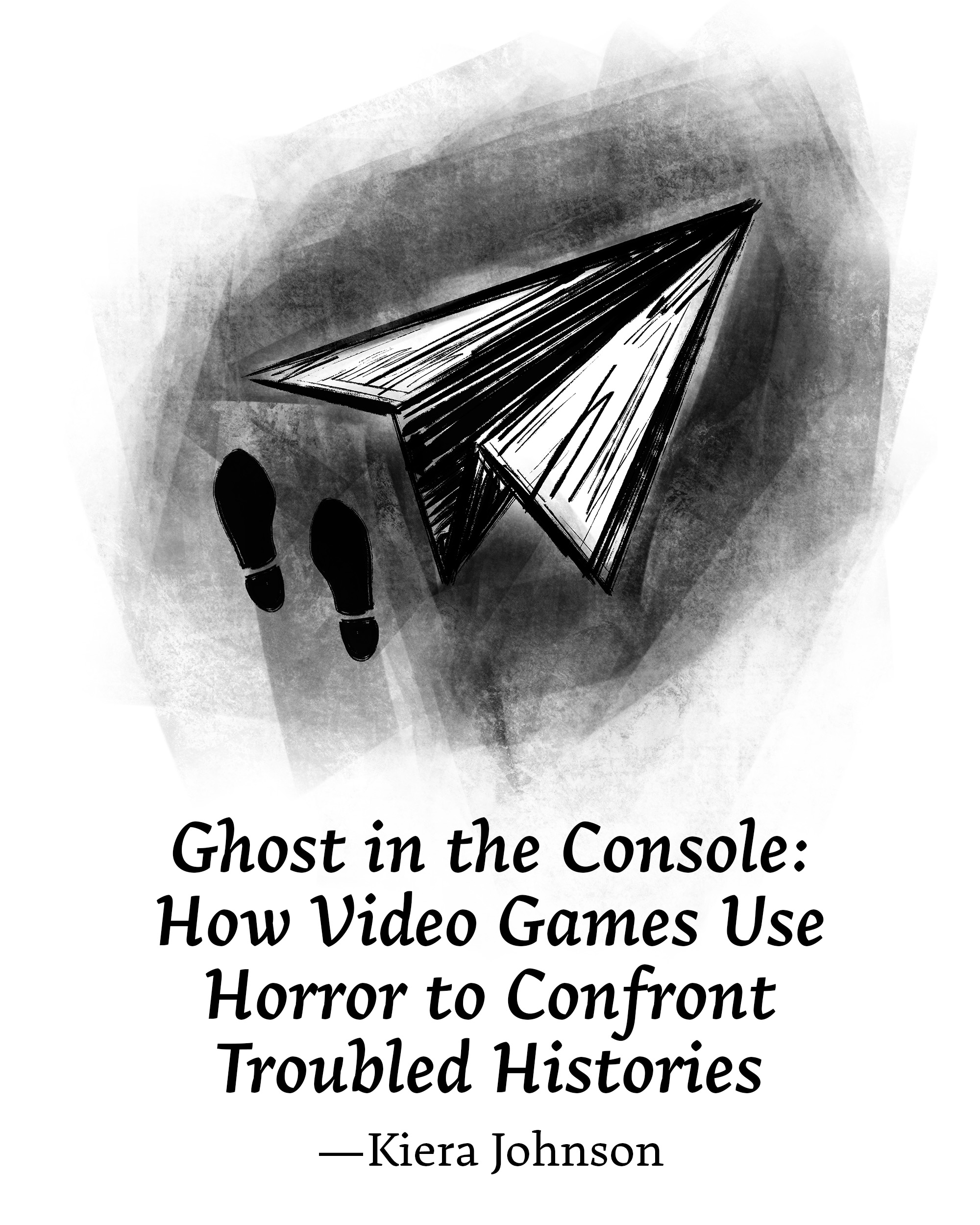Ghost in the Console: How Video Games Use Horror to Confront Troubled Histories

Spoilers for the video game Detention (2017) ahead.
On February 28, 1947, a Taiwanese woman was beaten by the authorities for selling contraband cigarettes on the streets of Taipei. When the surrounding public objected, one government agent fired into the crowd and shot a man dead. As a result of this confrontation—now known as the 228 Incident—protests broke out around Taiwan. The authoritarian Kuomintang government reacted brutally, arresting or shooting protestors and introducing martial law twice over the following three months of violence. Two years later, in 1949, martial law was made permanent. It wasn’t repealed until 1987—the second-longest period of martial law in world history to date.
Known today as the White Terror, this period in Taiwanese history created a “pervasive atmosphere of fear” in the population, as Sylvia Li-chun Lin describes in her book Representing Atrocity in Taiwan. Martial law meant no freedom of speech or assembly; strict censorship, especially of anything anti-government; and imprisonment or execution for anyone caught—or accused of—breaking the rules. These feelings of fear and powerlessness were compounded by an insidious state surveillance apparatus: it was safer not to know, not to remember, and certainly not to talk. Repression was the order of the day.
But now, nearly four decades after martial law was lifted, conversations are happening, and the horror genre emerges as the ideal lens for Taiwanese creatives looking to explore this dark period in their national history. The most famous example of this is the 2017 horror video game Detention 返校 by indie developers Red Candle Games. Detention is set during the 1960s, at the height of the White Terror. The player controls Fang Ray Shin, known as Ray in the game’s English translation, a student who wakes up alone in a classroom to find her school abandoned and haunted by violent ghosts. Through side-scrolling point-and-click mechanics, the player must explore the school, discover what happened there, and try to help Ray escape.
Across Detention’s three-hour playtime, the player pieces together the complicated truth. In the past, there was an underground book club in the school, led by teacher Yin Tsui Han and supplied with banned books by school counsellor Chang Ming Hui. Ray, who had feelings for Chang and saw Yin as a romantic rival, decided to report Yin to the authorities, hoping to get her fired and out of the way. Ray persuaded her classmate Wei Chung Ting to give her the club’s reading list as evidence of Yin’s illegal activities. Not fully aware of the gravity of the book club’s crimes in the eyes of the authoritarian regime, Ray’s actions ended up leading to the torture and execution of all the book club’s members—including Chang. Only two survived: Yin, who managed to flee abroad, and Wei, who was imprisoned rather than killed after signing a confession. Tormented by the consequences of her actions, Ray jumped to her death from the school roof. The truth is revealed to the player: the school that they explore throughout the game is actually a purgatory created by Ray’s guilt and shame, where she relives her actions from start to tragic finish in a never-ending cycle.
While Detention’s narrative is wholly fictional, it draws on the very real and brutal suppression of banned organisations such as book clubs during the White Terror, as well as the discomfiting history of informers who took advantage of the state’s paranoia to enact personal revenge. Through the game’s complex narrative, sombre art design, and tense gameplay mechanics, Detention reconstitutes the period as a gothic nightmare. These elements converge to chilling effect in the ghosts that wander the school. These are not your typical Western spirits; in accordance with Taiwanese folklore, these malevolent ghosts will attack and kill anything that they sense breathing. If Ray can only hold her breath for long enough—animated as a tense crouch with one hand pressed tight to her mouth—she can pass by unscathed.
When considered in light of the game’s historical setting, this simple gameplay mechanic becomes a deft metaphor for self-censorship under authoritarian rule. One of the ways authoritarian regimes perpetuate their hold on the population is by creating a surveillance apparatus so powerful and pervasive that the individual internalises its gaze, policing their own thoughts and actions on the state’s behalf. During the White Terror, self-censorship became the ultimate survival mechanism, a truth captured powerfully by Detention’s developers with the animation of Ray holding her breath to evade the game’s ghost enemies. The metaphor is further developed through the game’s soundtrack, which at times mimics the ghosts’ moans—potentially tricking players into holding Ray’s breath in anticipation of non-existent enemies as they explore the school. Just as Taiwanese people under martial law would police their own minds and bodies due to the threat of constant surveillance, so too does the player act in fearful expectation of a danger that may or may not be waiting around the game’s corner. The metaphor of self-censorship, just one of the traumatising consequences of repressive authoritarian rule, is reinforced every time Ray holds her breath in Detention.
The use of ghosts as a metaphor for trauma is a staple of the horror genre. As Anne Whitehead explains in Trauma Fiction, ghosts and trauma are both revenants: feelings, memories, and histories that have been repressed and now erupt in the present as hauntings. Like trauma that returns as lingering emotional distress or physical malady, ghosts refuse to lay quietly. National traumas, meaning historical episodes of suffering on such magnitude that they reverberate across generations, are particularly ripe for phantasmal metaphors. In Taiwan’s case, exact death tolls and incarceration figures during the White Terror remain contested. It wasn’t until 2018 that the Transitional Justice Commission, which aimed to finally confront the White Terror and its aftermath, was established in Taipei. The martial law period, with its long-standing taboo and repression of truth, is thus primed for phantasmal metaphors—where memories are suppressed, revenants lurk. Detention blazes a trail for this conversation in 21st century popular culture, refusing to let it die out as the White Terror recedes further into history. The ghosts that appear in the game directly manifest the period’s traumatic horror, bringing the haunting into the present day.
Nevertheless, confronting deep-rooted trauma is anything but straightforward, and Detention‘s creators use Ray’s identity as a ghost herself to speak to this challenge. Trapped in a cyclical purgatory of her own making, Ray’s revenant nature reveals repressed memories that she is too afraid and ashamed to confront. In the game’s final chapter, a shadow double of Ray appears and asks what she has learned from reliving her past actions. Depending on how the player chooses to have her answer, one of two possible endings will play out. If Ray hasn’t learned anything from her mistakes, the player gets the bad ending: Ray re-enacts her suicide and the purgatorial cycle of forgetting, reliving, and regretting continues. However, if the player indicates that Ray has grown and changed over the course of the game, they get the good ending. The narrative perspective suddenly shifts to Wei Chung Ting, the classmate that Ray tricked into betraying the book club. Finally pardoned and released from prison, a now-middle-aged Wei visits his old school and adds his own viewpoint to the story. He remembers Ray compassionately, recognising that she was a teenager just as he was, caught up in the same repressive political system, trying to navigate life with little understanding of what was really at stake. Her informing on the book club is inexcusable, but under a brutally repressive regime, few are solely either victim or perpetrator. Finally, Wei sits down at his old desk, and a spectral Ray appears sitting opposite him. As the two characters face one another, Detention fades to black, permanently suspending Wei and Ray in the moments before their long-awaited reconciliation. Ray’s actions are understood, but not excused. We do not witness the absolution of her guilt; what matters more is the question of how she and the people she hurt can move forwards together into a better future.
Detention does not exorcise its ghosts. After all, as Whitehead suggests, exorcism can be just another means of suppression, of forgetting. Instead, repressed memories are allowed to reappear in phantasmal form, and they are faced head on, just as Wei faces Ray at the game’s conclusion. Detention suggests we should learn to live with our ghosts: make what reparations we can, learn from what has happened before, and work actively to prevent such things from occurring again. As an approach to haunted histories, it is nuanced, sensitive, and productive, and demonstrates the potential of the horror genre to drive these difficult discussions.
With armed conflict on the rise across the globe, the lessons of Detention seem more pertinent than ever. Russia continues to wage a war of aggression against Ukraine; Israel’s ongoing bombardment of Palestine, part of a fraught history of colonial violence, shows little sign of reprieve. These are only two instances of national traumas-in-the-making that are occurring in the public eye at the present moment. Closer to home, dehumanising xenophobic rhetoric, itself a legacy of a violent traumatising history, is increasingly normalised in Tory Britain. It is thus vital that we reconsider the role of the individual in such political systems, and the horror genre offers one way to access these discussions. Haunted histories require care in their handling; there is no easy way to confront national traumas on the scale of Taiwan’s White Terror, and no neat exorcism to do away with its revenant aftermath. They are ghosts we must face, nonetheless.
Kiera Johnson is a literary translator, writer, and speculative fiction enthusiast, specialising in Chinese, Taiwanese, and queer works of science fiction, fantasy, and horror. Recent areas of academic focus include queer monstrosity in Taiwanese lesbian fiction, biopolitics in Taiwanese climate fiction, and ghosts in video games.
Instagram: kierajoy
